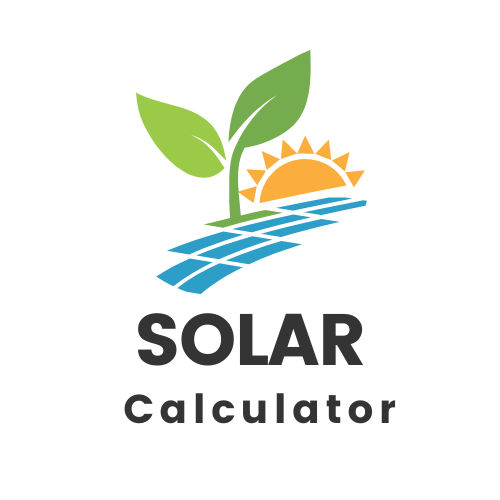Solar energy is a widely recognized and sustainable source of electricity that has garnered increased attention in recent years. Nevertheless, several misconceptions and myths about solar power persist, potentially dissuading individuals from exploring it as a feasible energy solution. In this blog post, our objective is to dispel some of the prevailing misconceptions related to solar energy, delivering accurate and trustworthy information to empower you in making informed decisions regarding the use of solar energy for your residential or commercial needs.
Myth 1: Solar Panels Don’t Work on Cloudy Days or During Winter
One of the most prevalent myths about solar energy is that solar panels are only effective on sunny days and are practically useless during cloudy or winter months. This belief couldn’t be further from the truth. Solar panels can still generate electricity even when the sun is not shining brightly.
Solar panels are engineered to capture energy from sunlight, not exclusively relying on direct sunlight. Even during cloudy days, a substantial amount of sunlight penetrates the Earth’s atmosphere and reaches the surface. Contemporary solar panels are specially designed to harness this diffuse sunlight effectively. While their efficiency may experience a slight reduction under overcast conditions, they consistently generate electricity, establishing them as a valuable and dependable energy source throughout the year.
During the winter season, solar panels can maintain their productivity provided they are positioned correctly and receive an adequate amount of daylight. While the daytime hours are shorter, and the sun’s angle is lower in the sky, the critical factor for optimizing their efficiency lies in ensuring that the solar panels are clean, free of snow, and positioned at the right angle to capture the maximum amount of sunlight. This meticulous attention to proper orientation is essential for maximizing the effectiveness of your solar panel system.
Myth 2: Solar Panels Are Too Expensive
A prevalent misconception revolves around the belief that solar panels come with a prohibitive price tag, rendering them unattainable for the typical homeowner or business. In reality, the cost of solar panels has seen substantial reductions over the years, rendering them more affordable and within reach for a wider spectrum of individuals and businesses.
Additionally, various financial incentives and government programs are available to help reduce the upfront costs of solar panel installation. These incentives can include tax credits, rebates, and net metering programs, allowing homeowners to save on their energy bills and recoup their initial investment over time.
It’s crucial to consider the expense of solar panels as an investment in your forthcoming energy savings. Solar panels have the capacity to notably lower your electricity expenses and even generate additional income through the surplus energy they produce.
Myth 3: Solar Panels Require Constant Maintenance
Some individuals believe that solar panels are high-maintenance and require continuous care to function efficiently. In reality, solar panels are relatively low-maintenance. They have no moving parts and are designed to withstand various weather conditions.
Regular maintenance typically involves occasional cleaning to remove dirt, dust, and debris that may accumulate on the surface of the panels. Most solar panel systems can be cleaned with water and a soft brush or a squeegee, and it’s a task that can be performed a few times a year. Beyond that, there is minimal maintenance required.
Myth 4: Solar Energy Is Not Environmentally Friendly
Contrary to this myth, solar energy is one of the most environmentally friendly energy sources available. Solar panels produce electricity without emitting harmful greenhouse gases or other pollutants. By harnessing the power of the sun, solar energy significantly reduces carbon emissions and helps combat climate change.
Furthermore, the manufacturing of solar panels has evolved towards more environmentally friendly practices over time, as manufacturers embrace cleaner and sustainable production methods. By incorporating solar panels into your property, you play a role in promoting a more eco-friendly and sustainable future.
Myth 5: Solar Panels Are Ineffective in Cold Climates
It’s a common belief that solar panels are only suitable for warm and sunny regions, and they are ineffective in cold climates. While it’s true that solar panels are more efficient in areas with abundant sunlight, they can still be highly effective in colder climates.
Solar panels often exhibit higher efficiency in colder temperatures, which presents a notable advantage in regions characterized by colder climates. These panels can effectively generate electricity even on clear, cold winter days, establishing them as a viable and productive choice for homeowners and businesses situated in colder areas. Importantly, it is worth mentioning that numerous countries with colder climates have successfully implemented solar energy programs, reaffirming the practicality and effectiveness of solar energy in such regions.
Myth 6: Solar Panels Are Ugly and Distracting
Some people worry that installing solar panels on their properties will detract from the aesthetic appeal of their homes or buildings. While early solar panel designs may not have been the most aesthetically pleasing, today’s solar panels come in various styles and colors to blend seamlessly with your property’s architecture.
Solar panels can be integrated into your property’s design in a way that enhances its appearance rather than detracting from it. Moreover, the long-term environmental benefits of using solar energy can far outweigh any concerns about appearance.
Conclusion
Misunderstandings and false beliefs regarding solar energy have the potential to deter individuals from considering this sustainable energy source. Therefore, it is crucial to debunk these misconceptions and provide accurate information that enables people to make well-informed decisions about solar energy. Solar panels present a pragmatic and environmentally responsible choice for both homeowners and businesses, regardless of their specific climate or geographic location. Not only do they deliver substantial, long-term energy cost savings, but they also contribute to the reduction of carbon emissions, potentially enhancing property values. With ongoing technological advancements, solar energy is poised to become an even more accessible and cost-effective solution for a wider audience.
If you’ve been hesitant to explore solar energy for your property, it’s time to separate fact from fiction and consider the tangible benefits that solar panels can provide. By doing so, you’ll be taking a significant step toward a more sustainable and eco-friendly future while potentially saving money on your energy bills. Don’t let these myths hold you back from harnessing the power of the sun and making a positive impact on the environment and your finances.
Remember: The myths surrounding solar energy may persist, but as more people embrace this renewable energy source, the truth about its effectiveness and benefits will continue to shine through.
So, why not take the plunge and explore the potential of solar energy for your property? It’s a decision that can lead to a brighter, cleaner, and more sustainable future for us all.

